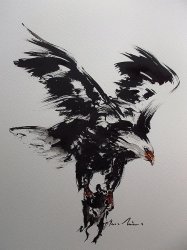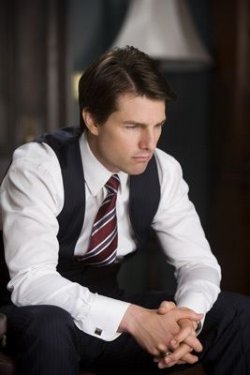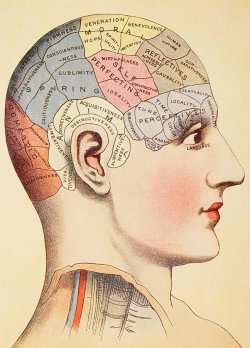Abishai100
VIP Member
- Sep 22, 2013
- 4,959
- 250
- 85
Can intellectual analysis solve the problem of modern customs-based schizophrenia?
Anyone a fan of the film Spy Game?

====
As we reflect on the kinds of military-intelligence stories told in the modern era, we might consider why the appearance of fictional 'warrior-avatars' represents a social curiosity about customs and etiquette. After all, the modern age is all about contract-driven networking (e.g., Wall Street). This makes the job of historians somewhat more challenging, since they have to sort out cultural trends from cultural biases!

Americans make films about leadership and inventiveness in the modern age of commerce. These symbolic films represent a human fascination with the consequences of serious networking-related decision making regarding international bodies such as the United Nations, the World Health Organization, and the Vatican. Historians are required to understand why racism confounds modern pluralism goals and how terrorism devastates modern socio-political interests in geopolitical contracts.

An American youngster might make intricate and inventive Civil War dioramas with realistic painting miniature soldiers from the Union and Confederate armies to better appreciate the logistics and patterned traffic involved with complete self-destructive or politically-mandated implosive agendas (which threaten even domestic customs!). This American youngster constructing his/her fancy little Civil War diorama might note that characterizations of war and warfare remind historians of the details of human customs with respect to networking-related deformities (i.e., racism, terrorism). For example, the youngster might ask, "How did the American Civil War remind us of political hygiene?"

Commerce and consumerism generate its own kinds of ethics. Bargaining requires speedy evaluation of profitability/practicality. Production and design represent a social interest in manufacturing quality. Since commercial networking creates all kinds of contract-related intrigue, social leaders are obligated to understand trust-based political etiquette. This makes pluralism-challenging problems such as racism and networking-obstacles such as terrorism key maladies for historians to study (to better appreciate modernization itself!). The modern world is after all a sort of 'experimental bazaar.'

Imagine therefore that a specific esoteric (or lesser-studied) battle of the American Civil War involved very strange events which were nevertheless symbolic of the entire war (or even war itself!). Imagine for example that a Union soldier during his esoteric Civil War battle (let's call the battle 'Frankenton') betrays one of his own troops to steal his gun when his own malfunctions during battle. Imagine also that a Confederate soldier goes on a nearly-psychotic killing-rampage during Frankenton. Imagine further that a Union and a Confederate soldier believe they both witness the 'presence' of a benevolent angel-figure while fighting each other! All of these 'scenarios' of our hypothetical Civil War battle called Frankenton might help historians appreciate why modern civilization splinters (e.g., racism, terrorism) are signs of networking-related pathology(!). After all, human behaviour is imprinted onto 'patriotism patterns.'

All of this networking homogeneity meditation would naturally create schizophrenia in the brain of the modern man! Society icons, politicians, and ministers are constantly thinking about the impact of contract-dissolution, network-disarray, and trade-frailties. As we 'map the world,' the internal mental-maps inside our brain might seem more...sensitized. This sort of 'Orwellian schizophrenia' would create a anti-spiritual sloth! Consumers would mindlessly traffic the earth in search of goods at the expense of human companionship. What would historians actually praise? Would the United Nations feel like a coordinated body capable of dealing with racism/terrorism? What does commerce-focused U.S. President Donald Trump think?

All new age negotiations in symbolic international bodies such as the Security Council are meant to create confidence towards networking opportunities. Wall Street, the European Union, NATO, the World Bank, and OPEC are new age symbols of commerce-driven 'aesthetics.' Social leaders are obligated to understand contract reliability, and historians are compelled to evaluate the process of diplomacy. That's the challenge of modernism --- SOLIDARITY.

If you're a parent of a junior-high or elementary school student, you might want to urge your child to study the role of contracts and diplomacy in the modern world of industrialization and commerce, so your child can better-appreciate why monitoring-groups such as the Environmental Protection Agency (EPA) must enforce hygienic agreements. We gain confidence from history.
====


Anyone a fan of the film Spy Game?

====
As we reflect on the kinds of military-intelligence stories told in the modern era, we might consider why the appearance of fictional 'warrior-avatars' represents a social curiosity about customs and etiquette. After all, the modern age is all about contract-driven networking (e.g., Wall Street). This makes the job of historians somewhat more challenging, since they have to sort out cultural trends from cultural biases!

Americans make films about leadership and inventiveness in the modern age of commerce. These symbolic films represent a human fascination with the consequences of serious networking-related decision making regarding international bodies such as the United Nations, the World Health Organization, and the Vatican. Historians are required to understand why racism confounds modern pluralism goals and how terrorism devastates modern socio-political interests in geopolitical contracts.

An American youngster might make intricate and inventive Civil War dioramas with realistic painting miniature soldiers from the Union and Confederate armies to better appreciate the logistics and patterned traffic involved with complete self-destructive or politically-mandated implosive agendas (which threaten even domestic customs!). This American youngster constructing his/her fancy little Civil War diorama might note that characterizations of war and warfare remind historians of the details of human customs with respect to networking-related deformities (i.e., racism, terrorism). For example, the youngster might ask, "How did the American Civil War remind us of political hygiene?"
Commerce and consumerism generate its own kinds of ethics. Bargaining requires speedy evaluation of profitability/practicality. Production and design represent a social interest in manufacturing quality. Since commercial networking creates all kinds of contract-related intrigue, social leaders are obligated to understand trust-based political etiquette. This makes pluralism-challenging problems such as racism and networking-obstacles such as terrorism key maladies for historians to study (to better appreciate modernization itself!). The modern world is after all a sort of 'experimental bazaar.'
Imagine therefore that a specific esoteric (or lesser-studied) battle of the American Civil War involved very strange events which were nevertheless symbolic of the entire war (or even war itself!). Imagine for example that a Union soldier during his esoteric Civil War battle (let's call the battle 'Frankenton') betrays one of his own troops to steal his gun when his own malfunctions during battle. Imagine also that a Confederate soldier goes on a nearly-psychotic killing-rampage during Frankenton. Imagine further that a Union and a Confederate soldier believe they both witness the 'presence' of a benevolent angel-figure while fighting each other! All of these 'scenarios' of our hypothetical Civil War battle called Frankenton might help historians appreciate why modern civilization splinters (e.g., racism, terrorism) are signs of networking-related pathology(!). After all, human behaviour is imprinted onto 'patriotism patterns.'
All of this networking homogeneity meditation would naturally create schizophrenia in the brain of the modern man! Society icons, politicians, and ministers are constantly thinking about the impact of contract-dissolution, network-disarray, and trade-frailties. As we 'map the world,' the internal mental-maps inside our brain might seem more...sensitized. This sort of 'Orwellian schizophrenia' would create a anti-spiritual sloth! Consumers would mindlessly traffic the earth in search of goods at the expense of human companionship. What would historians actually praise? Would the United Nations feel like a coordinated body capable of dealing with racism/terrorism? What does commerce-focused U.S. President Donald Trump think?

All new age negotiations in symbolic international bodies such as the Security Council are meant to create confidence towards networking opportunities. Wall Street, the European Union, NATO, the World Bank, and OPEC are new age symbols of commerce-driven 'aesthetics.' Social leaders are obligated to understand contract reliability, and historians are compelled to evaluate the process of diplomacy. That's the challenge of modernism --- SOLIDARITY.
If you're a parent of a junior-high or elementary school student, you might want to urge your child to study the role of contracts and diplomacy in the modern world of industrialization and commerce, so your child can better-appreciate why monitoring-groups such as the Environmental Protection Agency (EPA) must enforce hygienic agreements. We gain confidence from history.
====
